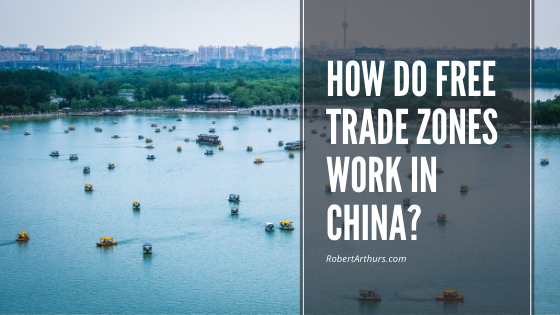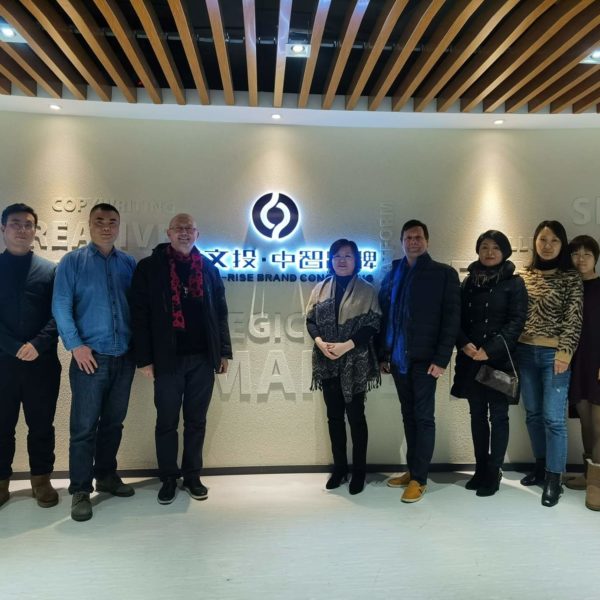Business Insights on Chinese Importations, Buying Cycles and Its Free Trade Zones
With over 4 billion people, China has a broad market to trade that no globally-minded brand can ignore. Being one of the most powerful consumer markets on the planet, it can be perceived that entering the market in China to its free trade zones is no easy task . But there are strategies to learn and to find success in this business route with the help from the experts in this niche.
At The Negotiation Podcast interview with Todd Embley last October of 2019, Robert A. Arthurs gave his invaluable insights on import regulations, the buying cycles and free trade trade zones in China. Known for his expertise in the field of international trading, he has tremendous experience collaborating and working with Chinese distributors. The approaches to adapt to this kind of trading system is overwhelming and intensively requires the expertise of a specialist like Robert Arthurs. Have a listen to the talk and follow the highlighted topics below. Podcast Source: Negotiation Podcasts by WPIC Marketing Plus & Technologies. Podcast Introduction (00:00-01:53)Ending up in China for Business(1:53- 2:40)
Todd: Rob, welcome to the show. Thanks for coming on. This is gonna be a fun show. But before we dive into the deep stuff, please tell our listeners about how you ended up in China.
Rob: In 2000, I was invited by the Northeast China government because at that time I was in a clothing business and I was invited with 70 other Canadian businesses to visit Northeast China- Harbin, Yingcao, Dajing, Dalian, Shenyang, Xinjian, Beijing and for two weeks we were on a trade mission traveling around Northeast China visiting factories. And they wanted at the end of the day, they’re whole mission was for these Canadian companies to open up factories or joint ventures with Chinese companies in one of those areas.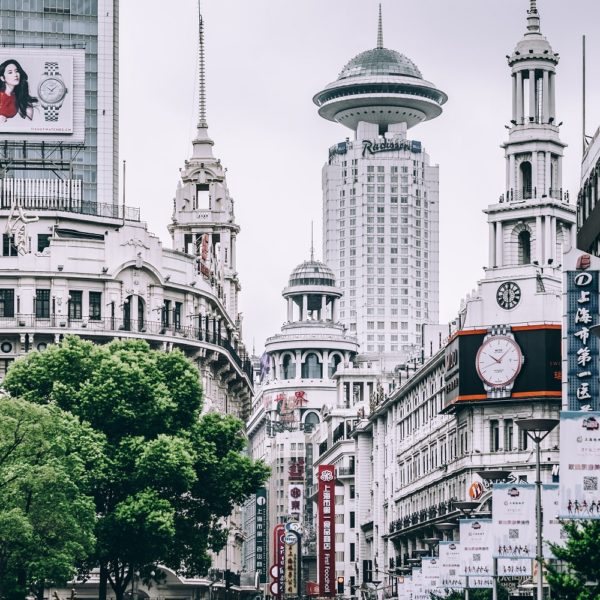 Photo by Hanny Naibaho on Unsplash
Photo by Hanny Naibaho on Unsplash
China as the Trade Zone (2:40-3:47)
Todd: And then, what led you to come back and actually build your own business there?
Rob: You know Todd, if it was a few years later when I got out of that clothing business. I came back to China in the food space through with a British Columbia government. There was a gap of about eight years before I went back again and I came back as a consultant to the British Columbia government here in Canada. And I led a mission to a huge food show “Food Hotel China(FHC)” show in Shanghai. And that was the first of the many trade missions into China. Over the next 10 years, I lead the missions from Canada to the Dalian Seafood Show, Qingdao Seafood Show, Guangzhou Seafood Show, FHC in Shanghai. During one of those missions in 2016, I met my wife and I ended up marrying a Chinese gal from Xian China. And now we go back often as we are doing a vitamin business there and helping a few other companies into that marketplace for their exploratory.Inside the Space of Agri-Food and Supplement Business
Agri-Food(3:48: 4:11)
Todd: And then, you’re heavily involved in the agricultural space in general. Is that correct? Rob: Correct. I could define this Agri-food. Agri-food, in my definition of Agri-Food is anything you eat, drink, swallow, put on your skin or smell. So that’s beer, wine, water, snacks, livestock, seafood, skin care, aromatherapy, essential oils. Those sorts of things.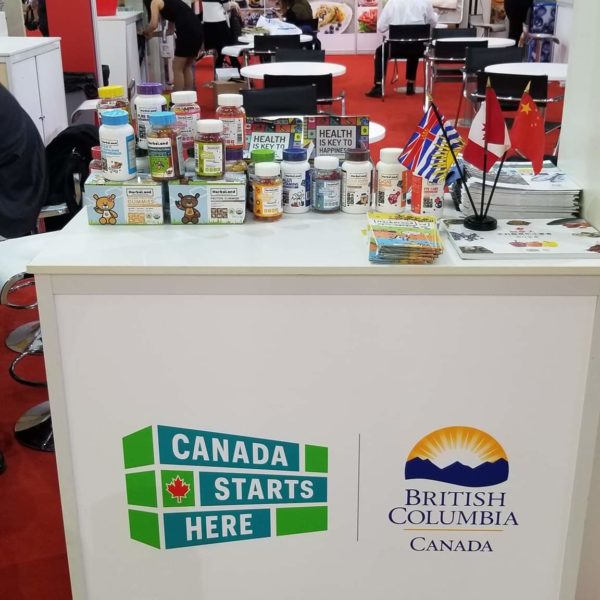
Supplement (4:11-6:07)
Todd: Okay, and so, tell us a little bit about the business on that side of things that you do now.
Rob: Right now, I’ve entered the Chinese space with the supplement company. So what we have decided to go back to the marketplace and focusing on challenges in the region. So for instance, not all China, but most of China has there are about 700 hundred million people in China who have got eye problems. They wear eyeglasses. So we’ve developed the antioxidant with a couple of doctors here in Vancouver and a pharmacist who have got a formula that they’ve been using natural products that they’ve got great success in trading North American clients with and we’ve taking it back into China and hoping to treat what we call a blue screen eye problem from kids and adults who play maybe or playing too many games on their phones or computers. Chinese or Asian women are the most iron deficient in the world. So if you’re pregnant your chances are your baby will be born iron deficient and postnatal -the breast milk will be iron deficient. And so we have a formula that we’ve been using very successfully, it’s all-natural. The Doctors over the last 15 have been treating their clients with this very high iron potency. So we’ve taken into the marketplace as well. Anotherformula for inflammation which gets right to the gut- where all the problems of health start in your gut and it goes to your brain and all the other organs. And so we have an inflammation remedy that we have introduced in China. So those are three products of about 5 that we’re going to launch over the next year those first three are in the marketplace now.Importation Regulations in China (6:07-7:44)
Todd: So given the industries that you’re in, to me that strikes me is highly regulated. So talk to me about what the regulatory environment is for those kinds of products and how you’ve been able to be successful?
Rob: Those kinds of products Todd, are very highly regulated especially if you’re gonna go to bricks-and-mortar. Then you have to get rigorous testing done and registration as well, which could be anywhere from one year to three years and it could cost an enormous amount of money anywhere up to 50 to $150,000. So the easiest way we found is to go cross-border which is e-commerce and bypass those regulations. Although again, they said our products are all-natural. There is nothing pharmaceutical about our products just ancient recipes and some new ones. You’ve got to know what is your strategy, and ours is to was to go into e-commerce. And you know, it’s still not without its challenges. Still we have few challenges going that route but we have some smart people on the other side that can help us through. And fortunately for us in Vancouver, we’ve got a great organization called CCIC that’s aChinese Canadian Inspection Conglomeratethat’s part of the Chinese government that will help Canadian companies or North American companies enter that marketplace enable sort of hold their hand.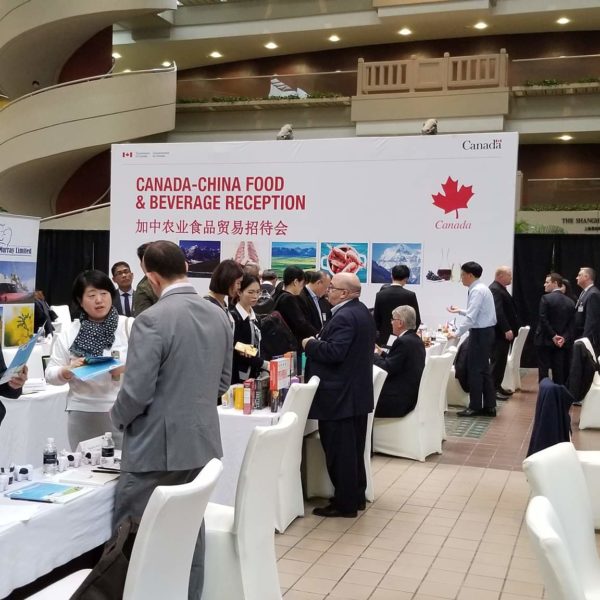
The Struggles of Doing Business in China (7:44-9:39)
Todd: You mention that a lot of your products are natural and organic. See you don’t have a lot of these kinds of FDA type of issues with the regulatory stuff. But you did say that there are a lot of other struggles that you still have to deal with as far as doing e-commerce in China. Tell us a little bit more but what those are.
Rob: Well some of the struggles you know are its credibility. Our line Dr. Approved Natural Products has been formulated by a Naturopath and a Pharmacist, Doctors here in Vancouver. So part of our disruptor strategy is, the doctors being involved and using these products to treat their clients with success. Were trying to be a differentiator from everybody else selling vitamins in China. Everybody is coming out and its maybe a young person selling vitamins and I don’t want to discount if there’s any problem with that. These are doctor-endorse products in North America that have been tried tested and true. They’ve been used on patients in Naturopath clinics and in pharmacies for a dozen years. But you know, it’s trying to educate on the China side that we’re not a fraud, and these are legitimate products. How do you prove that stuff, that said the end of the day it’s doing videos, creating good marketing materials, backing it up with testimonials, lab tests or clinical trials, those sorts of things. Were trying to stay one step ahead of being asked for by offering it up right away as part of our marketing plan. We want to make sure that we are ready when Alibaba or JD.com come knocking on the door or we knock on their door.The Buying Cycles in China(9:40-12:18)
Todd: How does the buying cycle work in China?
Single’s Day Rob: You know that’s very very interesting and we in North America don’t understand that completely. I mean it’s ..you know, it could be related to the stars. It could be related to the moon. It can be related to the calendar. What I mean is, you take it for example, Single’s Day. Well, I don’t know how many billion dollars Alibaba sold last year or two, but I think it was north of 30 billion US dollars in one single day. I know that’s when I was at one of the e-commerce companies in Shanghai. They had sold 1 million liters of New Zealand milk in 24 hours. A million liters! So you look at that stuff and flying in China is not ..is a social experience. It’s not like us we’re on Amazon looking for impulse buying. There a lot more.. that is more of a social thing for them. Chinese New YearLook at Chinese New Year. This year I was asked to source for Chinese New Year 10 containers a pig’s feet. If you have no idea how big the Chinese new year is, I will give you an example for those pigs’ feet. 10 containers, that’s 300,000 pigs that need to be slaughtered just to fulfill one company’s order for Chinese New Year. Then out that presents a problem for the slaughterhouses in Canada or the USA or Mexico they are saying what are we supposed to do with all the other parts of the 300,000 pigs? You know.. unless you can find me a buyer for the pig’s belly, ribs, etc they can’t do it. Those sorts of things of the buying cycle in China are an anomaly like I don’t see if any other country and I’ve been in the buying field for a long time even with my clothing company. I was immersed in Chinese cultures and the buying…. It’s just..it’s fascinating to watch on just it could be numerology. It’s there just a whole bunch of different things about it and they make a festival out of their buying cycles.
Todd: Sir, Single’s Day was reported last year 30.8 billion which smashed 2017, which was summer in the 24-25 billion if I remember correctly. Rob: That’s staggering Todd! We don’t even sell that in all of December in North America for Christmas.Where the Brands go?(12:18-14:00)
Todd: Where the brands go when they want to enter China?
Rob: You know, they traditionally will go to Shanghai, Beijing, Guangzhou, or Hongkong of course. But you know, we’re finding now that the second-tier cities are the ones that are now demanding the attention. For instance, my wife’s city – Xian which is about 13 million people is up-and-coming. They built so much e-commerce as part of the belt road initiative and so there’s a lot of activity within second-tier cities and there are dozens of them in China. Todd, what would I recommend is North American companies are looking to penetrate China, should be looking at where the free trade zones are in China. There are many new ones. Shenyang, Xian, Haico all have one. There’s a course there several around the Shanghai area, but not everybody can go after the Shanghai market. It’s pretty saturated. That’s why I like the smaller centers like Shenyang, Xian may be small, but the surrounding area is 30 million. That’s almost the size of Canada. Chase one of those markets and that’s where I would be focusing. And for my brand, is to focus one of the smaller markets and then pour resources in there and become an expert in. (And) eventually people will see your product from there and they’ll be picking it up in Shanghai. But trying to go into one of the most expensive markets like Shanghai for a brand is now ..would be a mistake.The Free Trade Zones in China(14:00-16:16)
Todd: Can you tell us a little bit about the free trade zones that you mention in China? Where are they? How many if you know, how do they work? What are the advantages there?
Rob: Well, the free trade zones are a little different some of them when we had North America understand free trade zones. And sometimes it gets a bit confusing for someone like me from North America and I get a different answer sometimes from different people. But I believe there are at least 19 free trade zones in China, if not more. And what they, how they work is your products come in the free-trade zone, duty and tax-free and are warehoused. It is taxed when it’s left in that free trade zones. So if it’s sold by an Alibaba e-commerce entity then the taxes and duties will be added to that product when sold. Now there’s you can get some different answers from other people who work there but don’t understand the free trade zones. I find there’s a bit of confusion over the actual tariffs on different trade zones. I’ll give you an example of some of the challenges that in some of the free-trade zones. I’ve got people that are shipping oysters to free trade zone in Shanghai, but they’ll be taxed at a different rate than they will be should that oyster arrived in the port of Dalian. It’s the free-trade zone there. So some different anomalies are not consistent all across the border and I find that’s the same thing with customs in sometimes we’ve got had the same company shipping the same oyster- Funny Bay Oyster to Dalian with no problem. But that when that plane arrives with the same type of oysters in Shanghai there their they’re held in quarantine. So there’s some different anomalies and inconsistencies in free trade and customs from what I’ve seen in China.Going to the Route of Free Trade Zones(16:17-17:27)
Todd: Given your experience dealing with free trade zones, do you have any good advice for those that are looking to have go that route?
Rob:You know, I would be looking at.. what you know, and what you don’t know. Some of the people you will be working dealing with within us free trade zones may not know what you think they know because it varies from region to region. And like some of these free trade zones just opened up in the last 2 years. So they’re new, they’ve got new staff that doesn’t understand all the protocols. But in most of those areas whether you’re an American or a Canadian business or an international business, wherever you may be, chances are you’re going to have a Canadian Consulate of some sort in that area that can also help you and handle you. I know the American and Canadian Consulate in those provinces where the free trade zones, part of their responsibility to those foreign businesses is to help them walk through those protocols and get a better understanding of what those free trade zones are. Because as I said, a lot of these people are new and so don’t expect an answer that you get in Shanghai to be the same answer you’re gonna get in Xian.E-COMMERCE (17:28-19:29)
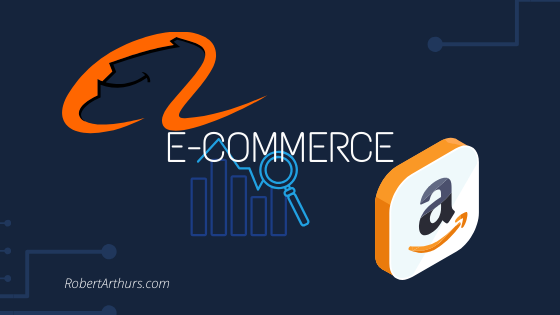
Todd: You’ve had a lot of experience e-Commerce- the Alibaba, the Tmalls, the Taobao, and things like that, what consumers are buying from China?
Rob: You know, it’s fascinating because I belong to an Amazon group here in Vancouver. And I’ve been in Amazon training for the last 11 weeks and I still got another three weeks to go. So I’m involved with a bunch of us in Amazon training and its the phenomena, Todd, Amazon is not known not only North America, but Europe wise is tapping China like crazy. Alibaba has got to be over the moon in the products they must be selling. I’ll give you an example if I mean, I’m a new Moscow mule drinker and wanted to buy the copper mugs. So I went to look at Alibaba where almost every Amazon seller goes. I found some beautiful copper mugs, some are smooth and some are nice ones that are hammered. The hammered ones are very decorative and are only a dollar apiece. You take that same copper mug and go over to Amazon and have a look at what they’re selling them for $49 US in a box. So all they have done is take those beautiful mugs from Alibaba put them into a decorative box with some nice labels on them. Silicone bottle was another one about how these collapsible silicone bottles are something by the tens of thousands on Alibaba. These are all Alibaba, Ali Express products that are coming from China. It’s fascinating to see what’s happening with Amazon and the consumer. And how fast is Amazon Prime is going crazy at globally in this field. We have two e-commerce behemoths (also with stores) in this field. We’ve got Alibaba on one side and we’ve got the Amazon and the other. Both are in the e-commerce space and now both are entered into the food space and it’s amazing to watch these companies cooperate and almost collaborate.The Key Missteps to Avoid (20:32-22:01)
Todd: What are the key missteps that some brands might want to avoid?
Rob: You know, I think not knowing your audience. You know what I meet a lot of people going there not listening, Todd. They don’t listen that especially if you’re North America business, you’re not listening to what they’re telling you. The Chinese do things at a slower pace than we do in some cases. You know, we all say all look at this big order that we’ve got. The next thing you know it but falls apart next to you know, they’re painting everybody all of China with the same brush and I think those are missteps and mistakes that we make and that’s not knowing by the not doing your homework on who your partner is.
And I think of the other thing that I can add, is North American companies, they don’t make enough trips to China to understand the marketplace. You need to be on the ground in those trade shows, even if you’re walking just to walk and see what’s going on to see how they do businesses. The cultural difference of how the Chinese do business even in the trade show booth to a North American. We all have different expectations. It’s a whole different game I think that’s the mistake that Canadian or North American businesses make that we just don’t do enough homework on who is a competitor is or who we’re buying from or who trying to sell to.Common Dealings with the Chinese Distributors (22:01-24:23)
Todd: You’ve had a lot of experience dealing with Chinese distributors. So speak to us a little bit about what the common deals that distributors try to make for and what the foreign counterparts in those deals should be aware of and be mindful of.
Rob: Well I think the biggest thing lesson taught that I’ve learned over the last number of years is the Chinese will try to lock you up for all of China. (Exclusivity) Yes. Exactly. Right they want exclusivity for China and because of our ignorance and not understanding the marketplace. And they will lock you up for 4 or 5 years and all they’ve done is take you out of the market place where every region of China because you signed away an exclusive. I would be doing it by provinces. Shaanxi province 30 million people. Liang province is 40 million people. Those are countries and China as the 1.4 billion people make the mistake of treating it as one country. You got to break that up and because the guy that you are talking to in Shanghai certainly has different needs to the person in Harbin. So they’re two different animals and I’d be looking at several distributors in different markets. And looking at those special products In, Xinjiang area, that’s in North East China, in that area, there are 300 million people already including Mongolia. And that itself is like in my idea is probably four countries. But a lot of people think that’s Northeast China and it’s not rich itself. Well, I’ve got good news for you. They are well heel up there in North-East China too. There’s a lot of money up there and they’re spending a lot of money.
When I go to Sanya, on Hainan island they’re there. They’re the one spending the money. People that come from the north can afford Hainan on the beach. So we can ignore those areas. And so when you’re looking at distributors look for a distributor in different areas of China. Not one that just says I can do all of China because that is just a fatal mistake and you’ll get you’ll find that that guy will lock that person will lock you up for years and years and years and then you’ll go back and say how China was a dog with a rip-off where it’s not just because you didn’t do your homework.Get in Touch with Rob (24:24-24:51)
Todd: Rob this has been amazing and I’m sure a lot of people going to want to get in touch with you. How can people reach you or find you or follow you? Rob: I think the best way to get a hold of me Todd would be through my website, which is www.robertarthurs.com. From there you can click on my Instagram, my Facebook and follow me from there and get in touch with me through all my social media and that’s probably the best way to get me.
In a Nutshell- The Best Piece of Advice (24:52-26:15)
Todd: Sounds good. Sounds good. Last question buddy, What is your best piece of advice for companies looking to do business in China?
Rob:The best piece of advice for me to give you it would be to do your homework go and visit a trade show go to the marketplace understand the people, you know, you may think, you know Chinese who live here in North America or other parts of the world. It’s different. It’s a different animal when you’re in that Marketplace. Its a different culture things are different. Some areas are a bit chaotic and other areas a bit calmer. The Chinese are very very fast forward and very forward-thinking they’re very smart or shrewd business people so you need to be on your toes. I think the best thing anybody should do is go on vacation or take some time to go to a trade show that’s relevant for your sector, and check it out for yourself. Make sure to make yourself aware that you are a foreign country. If you’re from Canada or the USA, make sure your products have got your flag on it to distinguish you from Chinese products, and don’t be afraid. You know what just but do your homework.(26:15-26:22)
Todd: This has been an excellent. Tons of great advice. Thank you so much for coming on the show. Rob: My pleasure. Thanks for having me, Todd. Content Resources: The Negotiation Podcast WPIC Marketing Plus & Technologies
